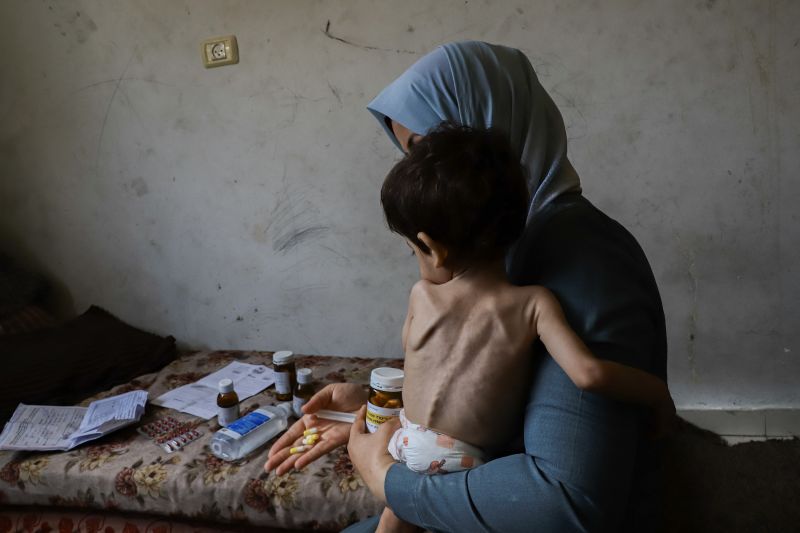The plight of Gaza’s population remains increasingly alarming as they continue to face mounting threats of famine and emergency levels of hunger, according to a recent report. The long-standing conflict, blockades, and economic hardships in the region have drastically decayed the living conditions within the narrow coastal strip, resulting in a looming humanitarian crisis that is impossible to ignore.
The geopolitical situation in Gaza, one of the most densely populated places in the world, has been grave, with its 2 million inhabitants having various restrictions on movement and economic activities due to an Israeli blockade since 2007. Over time, these conditions have exacerbated the crisis with most families struggling to meet their basic needs, resulting in spiraling rates of poverty and unemployment. This situation, however, has been further agitated with the outbreak of the COVID-19 pandemic and accompanying economic slowdowns.
According to the World Food Programme (WFP), over 68% of households in Gaza struggle with food insecurity. The report also suggests that around 80% of the population is heavily dependent on food aid. This alarming rate of food insecurity is symptomatic of an impending famine and indicative of a population under threat.
Escalating levels of hunger in Gaza are the results of compounding factors. The severe economic downturn, exacerbated by the Israeli blockade, has led to a sharp increase in unemployment rates, particularly among young people. According to the Palestinian Central Bureau of Statistics, the unemployment rate in Gaza stood at 45% in the third quarter of 2020, which is considered one of the highest globally.
Furthermore, the COVID-19 pandemic has further crippled the already struggling economy. Restrictions to slow down the spread of the virus have led to mass layoffs and business closures, further intensifying the economic instability. These phenomena have directly led to heightened levels of food insecurity, as families lack financial resources to secure basic nutritional needs.
In addition, the 13-year long blockade has markedly constrained the agriculture industry—a staple contributor of food production—in Gaza. Restricted access to farming territories and fishing waters, coupled with limited water resources and recurrent military operations have consequently caused a significant decrease in local food production. Inability to import sufficient food due to the blockade further compounds the crisis.
The healthcare sector is also barely holding on amid these challenges. Health facilities in Gaza have been drastically overwhelmed with COVID-19 cases. The UN Office for the Coordination of Humanitarian Affairs (OCHA) noted that the healthcare system’s ability to deal with the pandemic has been largely reduced due to long term challenges such as power outages, shortages of essential medications, lack of equipment, and staff shortages.
Non-governmental organizations and international humanitarian agencies have been on the frontline, attempting to alleviate this dire situation. WFP, UNRWA, and others have expanded their emergency operations in Gaza, providing food aid, and economic assistance to families with the most pressing needs. However, the scale of the crisis threatens to outstrip resources available to these entities.
Recently, alarm bells have been rung by international leaders and humanitarian organizations around the world, urging immediate policy changes aimed at improving the lives of Gaza’s residents. They vouch for comprehensive solutions that address the root causes of the issue like the blockade and geopolitical instability. They also stress the importance of restoring and protecting the agricultural sector in Gaza to reduce dependency on food aid.
The crisis in Gaza is as much a human rights issue as it is a developmental one. The population’s suffering under pervasive conditions of food insecurity and economic hardship is a grave violation of the right to adequate food and standard of living. It requires immediate attention and joint efforts towards a sustainable resolution to avert the looming famine and save millions of lives.




